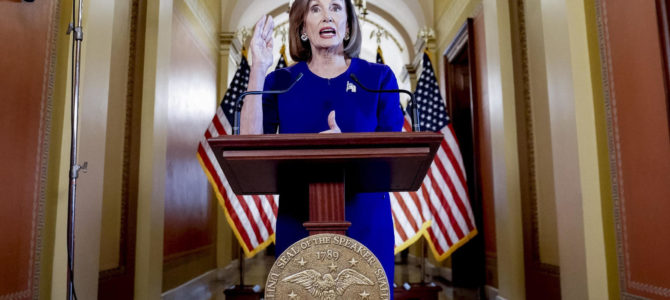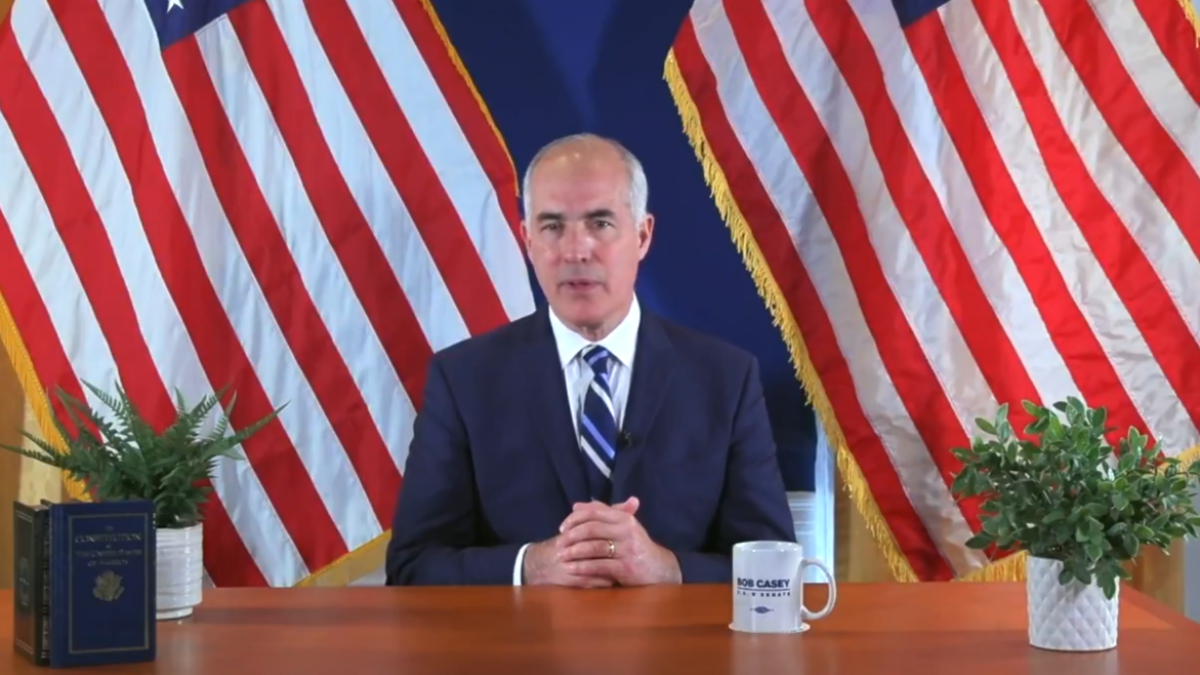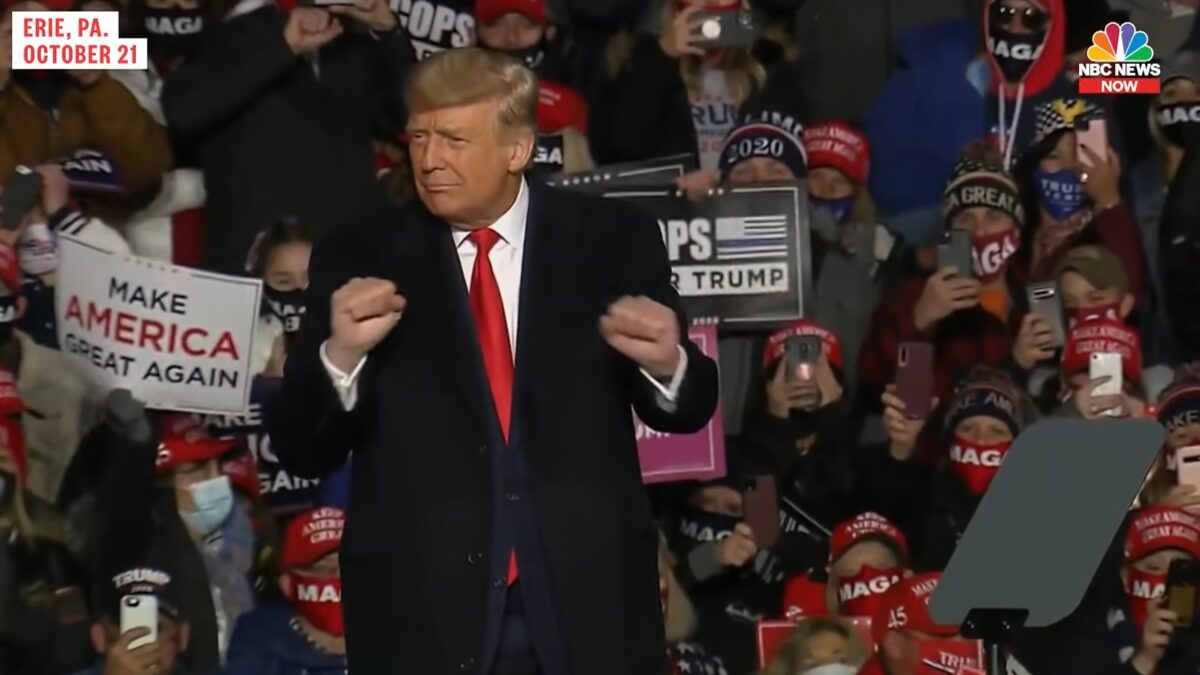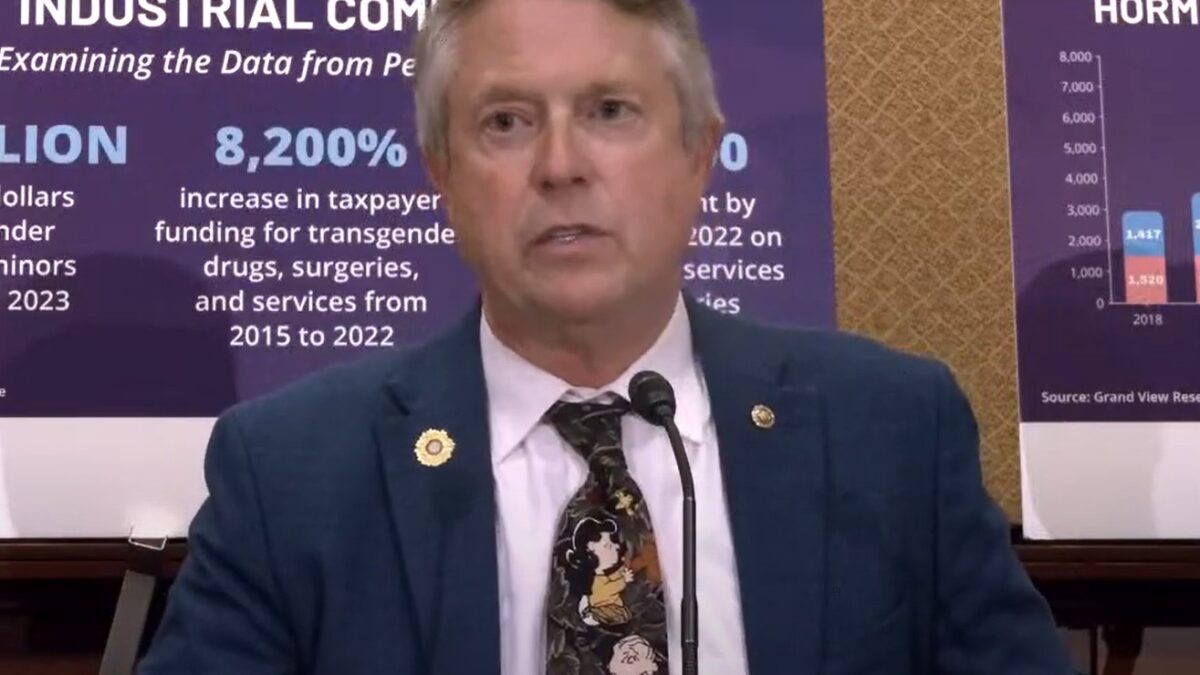
Democrats are on the verge of passing the fourth set of articles of impeachment this week through the House Judiciary Committee, putting the House one step closer to officially impeaching President Donald Trump. They include one article for “abuse of power” and one article for “obstruction of Congress.” Judiciary committee Chairman Jerry Nadler said near midnight last night the vote will be held this morning at 10 a.m.
It all marks Democrats’ closest attempt to finally achieve the top item on their policy agenda for the past three years: to reverse the results of the 2016 election. It has been an ongoing effort since day one of the Trump presidency and has been destined for failure from the beginning.
First, it was Russia. Democrats and a complicit media tried for years to convince the American public that Trump was a Russian asset working to undermine the interests of the United States for an adversary. After wall-to-wall media coverage, a deep-state FBI surveillance operation based on junk information funded by the Democratic National Committee, and a two-year special counsel investigation with unlimited resources, no one, none of the Democrats, no one in the media, not even Robert Mueller found one person from the Trump campaign, let alone Trump himself, had colluded with the Russian government to defeat Hillary Clinton.
Since the grand failure of the Russian collusion hoax, Democrats have pushed onward with their attempts to delegitimize the Trump presidency. They’ve advocated for the destruction of the constitutionally created Electoral College, labeling it a “racist” institution. They’ve continued to claim Trump’s victory was a consequence of “fake news.” They’ve claimed Russia “hacked” the election. They’ve rioted across the country chanting “resist” at every opportunity.
The latest attempt now supposely centers on Ukraine. The latest scheme to undo the will of nearly 63 million voters in 2016 relies on yet another conspiracy theory lodged by Democrats offered legitimacy once again by a compliant media, this time alleging Trump conspired with the Ukrainian president to investigate political opponents at home.
The evidence Democrats have relied on, however, makes for the weakest impeachment ever launched in American history, highlighting gross abuse of congressional power and serving as a national embarrassment.
Examining The Evidence
The impeachment proceedings were kicked off by an anonymous whistleblower complaint of a July 25 phone call between Trump and Ukraine President Volodymyr Zelensky. The complaint marked “credible” and “urgent” by the intelligence community inspector general despite no first-hand knowledge of the phone call was rejected by the Department of National Intelligence. An unredacted transcript of the phone call, however, was still declassified and released to the public by the administration, putting the conversation between the two world leaders in plain sight for all to see in an unprecedented move.
Democrats have argued the call reveals a seditious President Trump pressuring his Ukrainian counterpart to investigate Democratic presidential frontrunner Joe Biden’s family in exchange for nearly $400 million in military aid that was withheld days before the call.
Upon the transcript’s release, media outlets selectively sliced up the text to fit the false narrative of Ukrainian collusion. The Washington Post and The New York Times glossed over entire portions of the transcript to corroborate misleading headlines connecting “favor” with an investigation of the Biden family. CNN completely omitted 540 words on air to frame the president in an claimed quid pro quo.
A true and honest reading of the transcript however, offered no such evidence. The grand revelation from its release? That the American president urged the leader of one of the world’s most corrupt nations to rid his government of the corruption, and to investigate Ukraine’s peddling of the Russian collusion hoax that did irreparable harm to the United States. That’s the basis for which Democrats are impeaching President Trump for a “high crime and misdemeanor.”
In 1868, President Andrew Johnson, the first president ever to be impeached, clearly violated a congressional statute. A century later, President Richard Nixon clearly did something wrong and resigned before the articles could pass a full vote on the floor of the House. Twenty years ago, President Bill Clinton lied under oath.
Trump’s “high crime?” That he demanded a foreign leader clean up his own government. President Zelensky himself even said he felt no pressure to launch the requested investigations to receive the aid.
Of course, it is up to the House to define what exactly constitutes a “high crime and misdemeanor.” With this loose authority, it’s surprising that it has taken this long for House Speaker Nancy Pelosi to finally pick something to charge the president, given the 86 bogus reasons Democrats have come up with to impeach. Granted, Democrats placed a big bet on Mueller report solidifying their made-up charges of collusion based on debunked intelligence from the DNC-funded Steele dossier.
The Democrats’ Own Witnesses Exonerated the President
House Democrats still held four weeks of impeachment hearings to make their case to the public — two weeks of hearings in the House Intelligence Committee to interview fact witnesses followed by two weeks of hearings in the House Judiciary Committee to make their legal arguments.
Neither round produced any incriminating evidence to impeach the president of any kind of crime, whether it be a “quid pro quo,” “bribery,” or “extortion,” let alone the conventional standard of a “high crime and misdemeanor” constitutionally required to pursue presidential impeachment. In fact, to the contrary, witnesses called by Democrats either destroyed their own credibility as characters of the deep-state or exonerated the president of any wrongdoing.
Ousted former U.S. Ambassador to Ukraine Marie Yovanovich blatantly admitted that Trump committed no crime.
“Do you have any information regarding the president of the United States accepting any bribes?” Republican Rep. Chris Stewart of Utah asked during her hearing.
“No,” Yovanovitch said.
“Do you have any information regarding any criminal activity that the president of the United States has been involved with at all?”
“No.”
Enter Former State Department Special Envoy to Ukraine Kurt Volker and former National Security Staffer Tim Morrison whose testimonies both sliced straight through the crux of the Democrats’ impeachment theory. In their testimony before the House Intelligence Committee, both affirmed that there was no quid pro quo offered from Trump to Ukraine regarding the withheld military aid, which was ultimately released.
“In no way, shape or form in either readouts from the United States or Ukraine did you receive any indication whatsoever, or anything that resembled a quid pro quo, is that correct?” Republican counsel Stephen Castor asked Volker.
“That’s correct,” Volker said. “I was never involved in anything that I would consider to be bribery at all…or extortion.”
Republican Rep. Devin Nunes of California also posed the same question to Volker and Morrison, who were testifying together.
“Did anyone ever ask you to bribe or extort anyone at any time during your time in the White House?” asked Nunes.
“No,” said Morrison.
“No,” said Volker.
U.S. Ambassador to the European Union Gordon Sondland’s testimony was also supposed to be a bombshell day for Democrats, and mainstream media reported that it was. Sondland indeed testified that he believed there was a quid pro quo offered with Ukraine in exchange for the military aid.
Sondland, however, who had changed his testimony several times since the start of the impeachment process, offered no hard evidence to prove his claim and admitted during his testimony that his conclusion was based entirely on presumptions. Sondland was also asked during the hearing whether anyone told Sondland that the military aid was contingent on any political investigations.
“Mr. Sondland, let’s be clear: no one on this planet—not Donald Trump, Rudy Guiliani, Mick Mulvaney, Mike Pompeo—no one told you aid was tied to political investigations, is that correct?” Republican Rep. Mike Turner of Ohio asked the ambassador.
“That’s correct,” Sondland said.
Sondland further conceded that Trump explicitly told the ambassador that he wanted “no quid pro quo.”
When impeachment proceedings came to the Judiciary Committee, no witnesses offered any new facts to advance the Democrats’ case. Instead, legal experts offered their own opinions on whether what Trump committed was impeachable conduct.
The Biden Problem
Witnesses testifying before the House Intelligence Committee also furthered the case to investigate the Biden family, with every single person to come before the committee agreeing that there was a perceived conflict of interest when Joe Biden’s son, Hunter Biden was serving on the board of a Ukrainian energy company while Joe Biden oversaw U.S. policy towards Ukraine as vice president.
Hunter Biden was raking in $50,000 a month for serving on the board despite no prior experience in the industry. A Federalist analysis of comparable board compensation reveals this sum to be astronomically higher than what Hunter should have been making even with a high level of expertise in the field.
“My concern was that there was the possibility of a perception of a conflict of interest,” testified Deputy Assistant Secretary of State George Kent. Kent also told lawmakers that in 2015, Kent raised his discomfort over the situation the Obama White House, which brushed off his discontent.
“I raised my concerns that I had heard that Hunter Biden was on the board of a company owned by somebody that the U.S. government had spent money trying to get tens of millions of dollars back and that could create the perception of a conflict of interest,” Kent told lawmakers in an October private deposition. “The message that I recall hearing back was that the vice president’s son Beau was dying of cancer and that there was no further bandwidth the deal with family related issues at that time… That was the end of that conversation.”
Even Democrats Are Peeling Away From Impeachment
Public polling has shown Americans have not bought into the Democrats’ charade. Even after four weeks of hearings, public support for impeachment has failed to rise as Democrats had hoped, remaining steady at the same levels prior to the public proceedings.
A new Monmouth poll released Wednesday reveals that a majority of voters remain opposed to Trump’s impeachment 50-45 percent, well outside the survey’s +/-3.3 percent margin of error.
NATIONAL POLL: Support for impeaching and removing @realDonaldTrump unmoved by public hearings in House.
45% support (44% in November)
50% oppose (51%)https://t.co/HPGFli9vo1 pic.twitter.com/r3ac3D8kHH— MonmouthPoll (@MonmouthPoll) December 11, 2019
Further, impeachment has become wildly unpopular in key congressional swing districts vital to Democrats hoping to cling to their House majority next fall. The Washington Post reported Wednesday that Democrats are now bracing for at least six additional moderates to break from the party on the House floor next week when the articles come for a full vote. Two Democrats already defected from impeachment when the House voted on the formal proceedings late in October.
The only bipartisan vote likely to take place next week is in opposition to the Democrats’ partisan effort to cast aside the will of the voters in 2016.








